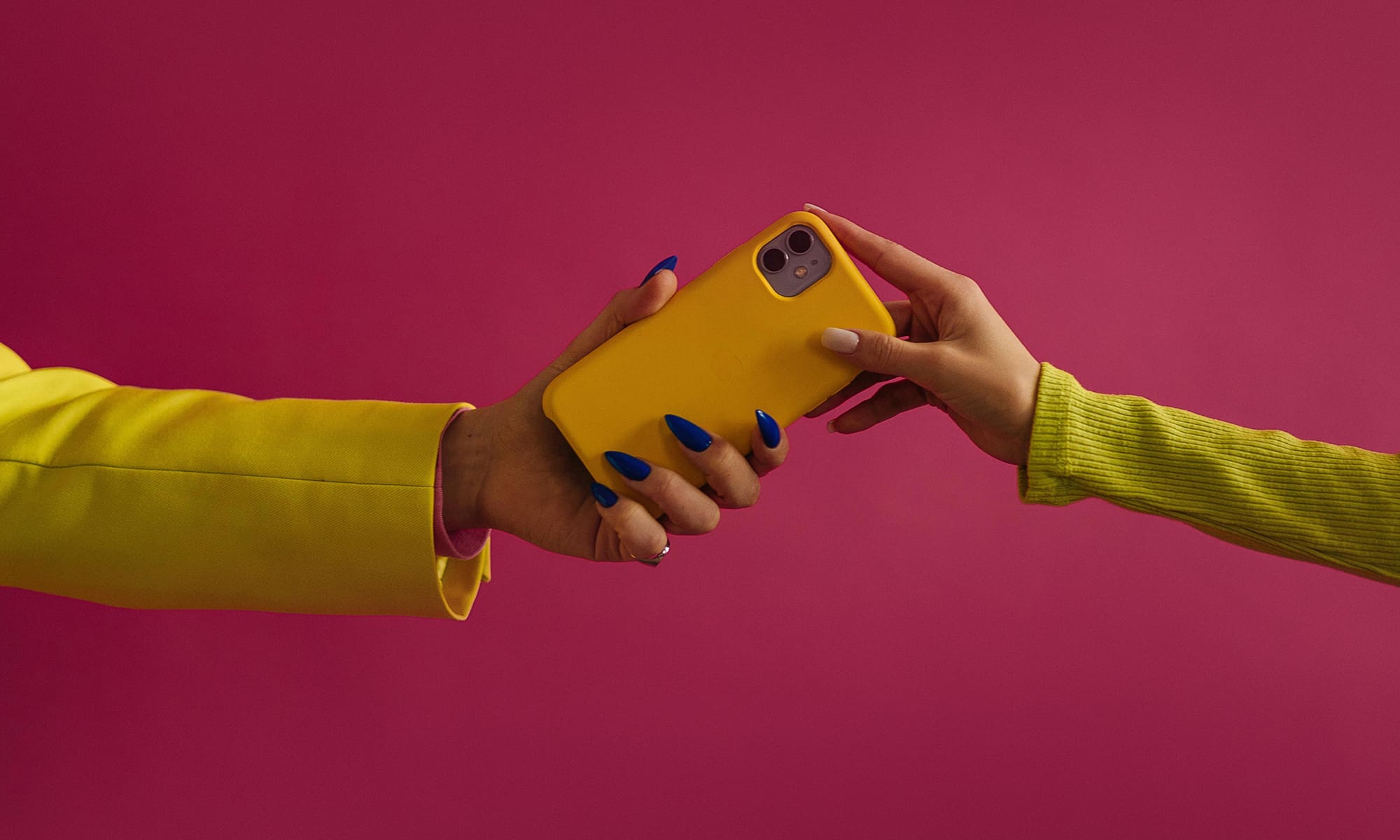Confession: When I share a post on my Facebook or Instagram account about the tasty cheeseburger, fries and milkshake I had for lunch, I might inspire one or two old friends to hit up their local Whataburger. (And let’s be real — I’ll probably prompt more smart-ass comments about my expanding waistline than I’ll spur burger sales.)
But when a mega-influencer like Selena Gomez (550 million-plus followers), Kylie Jenner (490 million-plus followers) or Dwayne “The Rock” Johnson (480 million-plus followers) does the same, the cooks better load up the grill and fill the fryer — because the fast-food orders are about to start rolling in. Such is the power of influencer marketing, which in the digital age has become one of the most popular and effective tactics direct-to-consumer (DTC) brands can leverage to raise consumer awareness, reach new audiences and spur more sales.
What Is Influencer Marketing?
Influencer marketing refers to a form of marketing that sees brands partner with popular social media users with substantial numbers of engaged followers to promote the brand’s products and/or services. Influencer marketing campaigns can be especially powerful because they capitalize on the trust, authority, reach and rapport influencers have built with their followers, leading to higher engagement rates and conversion rates for the brands that leverage them. By tapping into the influencer’s expertise and credibility within a specific niche, brands can effectively target their desired audience segments, drive brand awareness, foster brand loyalty and ultimately boost sales.
Interesting Influencer Marketing Statistics
Another reason influencer campaigns are so popular: They work. Consider these compelling statistics related to influencer marketing from Influencer Marketing Hub’s The State of Influencer Marketing 2024 Benchmark Report:
- 85% of surveyed marketing experts consider influencer marketing to be effective.
- Three out of five surveyed marketing experts who already budget for influencer marketing plan to increase that budget over 2024.
- A considerable majority (70%) of surveyed marketing experts prefer to work with smaller-scale — and less pricey — influencers (nano influencers 44%, micro influencers 26%) as opposed to more expensive macro influencers (17%) and celebrities (13%).
- As the leading choice of 69% of professional marketers surveyed, TikTok is (by far) the top social platform leveraged by brands for influencer marketing. Other top influencer marketing platforms include Instagram (47%), YouTube (33%) and Facebook (28%).
- Sales generation (at 23%) comes in a distant second as marketers’ motivation for running influencer campaigns — the leading purpose stated by survey respondents is to spur the creation of user generated content (UGC).
Need more evidence of the power and popularity of influencer marketing? Consider these additional eye-catching stats:
- The influencer marketing industry is predicted to hit $24 billion by the end of 2024, representing a three-fold increase since 2019.
- Among Millennials and Gen Z consumers, more than 60% say they trust influencers’ recommendations — and the number is showing steady growth.
- Nearly 80% of consumers say that UGC has an impact on their buying decisions and habits, adding to the allure of using influencer campaigns to spur UGC and influencer agencies for UGC.
- The average ROI on every dollar spent on influencer marketing is $4 to $5.
- Over 80% of brands say influencer marketing generates better leads than other types of marketing campaigns.
Why Authenticity is Key for Influencer Marketing
There is an important caveat to consider with influencer marketing, though — authenticity is critical. Today’s consumers crave genuine connections and are adept at recognizing insincerity or inauthenticity. So, when influencers endorse products or services they don’t truly believe in or haven’t personally experienced, it undermines their credibility and erodes the trust they’ve built with their followers. And as a result, inauthentic plugs can backfire, leading to disengagement, loss of followers, and damage to both the influencer’s and the brand’s reputations.
“It’s clear that in 2024, Gen Z doesn’t want to be ‘sold to,’” says Joybyte Lead Strategist Taylor Thompson. “That means, audiences primarily on Instagram and TikTok are looking to fall in love with a product versus the product being pushed into their feed at all times with no value to them.”
On the other hand, when influencers authentically align themselves with brands and products they genuinely believe in, their endorsements resonate more deeply with their followers, leading to higher levels of engagement and credibility. Authenticity fosters an emotional connection, allowing influencers to maintain their integrity while delivering authentic recommendations that feel natural and relatable to their audience. This transparency goes beyond enhancing the influencer’s reputation — as it also strengthens the brand’s reputation and credibility in the eyes of consumers.
“A really unique but successful campaign includes subtle placements within influencer marketing,” Thompson says. “This means your partnered influencer is not blatantly speaking about the product benefits or USPs, but rather mentioning it in passing or maybe not mentioning the product at all.”
What Can Influencer Marketing Achieve for DTC Brands?
When done right, influencer marketing can bring a broad range of benefits for DTC brands. Some of its key advantages can include:
- Increased brand awareness: Partnering with influencers allows DTC brands to tap into established audiences, helping them expand their reach and exposure to potential customers.
- Enhanced credibility: Influencers lend their credibility and authority to DTC brands, providing authentic endorsements that resonate with their followers and building trust in the brand.
- Targeted audience reach: Influencers often have niche-specific audiences, enabling DTC brands to precisely target their ideal customer demographics and interests.
- Authentic storytelling: Influencers often excel at creating compelling narratives and storytelling, seamlessly integrating DTC brand messages into their content in an authentic and relatable manner.
- Improved engagement: Influencer collaborations drive often higher levels of engagement, with audiences actively participating in discussions, asking questions, sharing content and expressing interest in the promoted products or services.
- Cost-effective marketing: Compared to traditional advertising channels, influencer marketing often offers a more cost-effective way for DTC brands to generate buzz, acquire new customers and drive sales.
Thompson also stresses that the nature of influencer marketing enables brands to start small — and that brands that don’t leverage the influencer marketing opportunity run the risk of falling behind the competition.
“The risks of NOT incorporating ambassador or influencer marketing into your marketing strategies is greater than beginning small with ambassadors and product seeding,” says Thompson. “As social users look to shop from someone they trust, macro influencers or celebrities might not even be the method to take with your brand. This means, while you’re discussing your annual or monthly budget for niched creators, you can tap into this ROI-bearing fruit sooner.”
A Few Real-World (and In-House) Examples of Influencer Marketing’s Impacts
Here at Joybyte, we see our clients’ influencer marketing campaigns deliver substantial success every day. Some of the recent influencer marketing efforts that have delivered especially noteworthy results include:
Influencer Miriam Gin for Lounge Wagon:
View this post on Instagram
“This post generated: 12 million views, 350k shares, 259k likes, and over 9,000 comments. Since starting our influencer program with Lounge Wagon, they have gained nearly 20k followers.
Influencer marketing is fundamentally about fostering relationships and cultivating a sense of community. When promoting a product with significant viral potential like Lounge Wagon, our strategy centered on identifying key influencers within the community we aimed to engage. In this instance, we partnered with a trusted mom creator who holds influence in the parenting sphere and possesses the credibility to endorse Lounge Wagon as a must-have product for moms. Given that parents tend to place greater trust in recommendations from individuals who share similar life experiences, Miriam’s role as a parent herself enabled her to forge emotional connections with her followers while offering a valuable parenting solution.
Posts of this nature often prompt active participation from other parents, who may contribute their own recommendations or pose questions about the featured products. By fostering dialogue within the parenting community through comments and interactions, we catalyzed the post’s virality, significantly enhancing its visibility and reach across the Instagram platform.”
— Taylor Gills, Joybyte Campaign Lead
Influencer Joey Wellness for Brodo:
View this post on Instagram
“This was a unique story because we were in contact with him before, but when he was in New York he asked if he could stop by the Brodo East Village location to see where the broth is made as well as get a cup from the window. This provided a lot of great information about the brand and generated 184,132 estimated Impressions on Instagram.”
— Chelsea Clough, Joybyte Lead Strategist
Influencer Olivia Kaiser for Pretty Tasty Tea:
View this post on Instagram
“The combination of this being a giveaway as well as it being shared by someone from the show The Challenge and having her post it the day a new episode aired really catapulted this post to over 20,000 likes.”
— Chelsea Clough, Joybyte Lead Strategist
The Future of Influencer Marketing
Based on the proven results it’s bringing for brands and the often eye-popping stats it consistently produces, the power of influencer marketing doesn’t appear to be waning anytime soon. In fact, it looks to be just getting started and steadily picking up steam — and brands that fail to seize the opportunity run the risk of falling behind the competition.
“There’s a lot of conversation happening around whether influencer marketing is here to stay, or what the next wave of social media marketing will look like,” says Gills. “The beauty of the internet is that it’s always evolving. The challenging part about the internet is that it’s always evolving. In a saturated market, influencer marketing is what will give a brand its ‘edge’ and is key to driving ROI. It’s essential to start building your community of creators now and grow with them.”
If your brand hasn’t incorporated influencer marketing into its 2024 marketing mix, now would be a great time to start reaping its broad benefits. Need assistance from a team of pros at an influencer marketing (and more) agency? Joybyte is here to help — talk to us today about our influencer marketing services.
YOU MIGHT ALSO LIKE:




